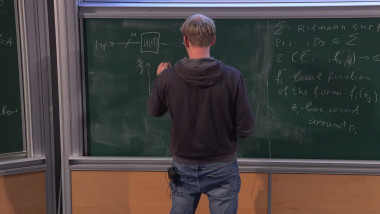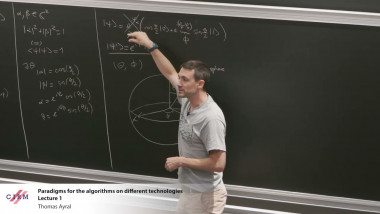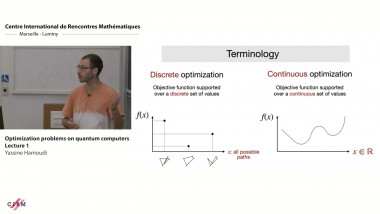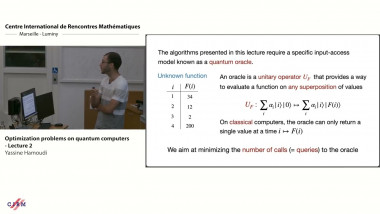Apparaît dans la collection : Séminaire Poincaré XXIII - L'information
The concept of quantum simulation was introduced by Richard Feynman in a 1981 visionary paper. In these early days of computers, Feynman raised the simple but profound question: can one simulate ”Nature”, i.e. a collection of interacting quantum systems with computers? Noticing the exponential growthof the Hilbert space with the number of particles, Feynman suggested to realizeanalog quantum simulators to gain information on complex many-body physics problems. These are ubiquitous in Nature, from condensed matter and nuclear physics to neutron stars and high energy physics.
Thanks to recent developments in the control of individual quantum systems on the one hand, recognized by the 2012 Nobel prize to R. Glauber S. Haroche, and D. Wineland, and to advances in theoretical quantum information on the otherhand, the field of quantum computing and quantum simulation is experiencing today a spectacular growth. Numerous academic groups as well as private companies are active in this research field characterized by a variety of experimental platforms to perform these tasks.
In this presentation we will first review the basic concepts of quantum simulation and outline similarities and differences with universal quantum computing. We will discuss the current quantum simulation platforms ranging from trapped ions, cold atoms, to cryogenic Josephson junctions and photonic systems. A few examples of recent results will be given. Finally we will outline open questions and challenges in this field.
















